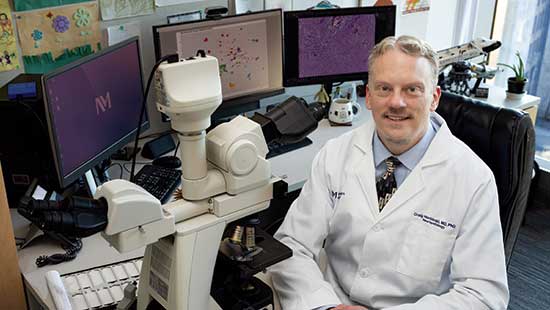Improving the care of patients with gliomas.
The Horbinski Lab
Our laboratory’s mission is to improve the care of patients with gliomas. These tumors cause the greatest aggregate loss of life, because they can strike at any age and are largely incurable. We are also pursuing research in meningiomas, another type of brain tumor that does not have any effective chemotherapy options. Both in our own laboratory, and by providing other research labs with high-quality biospecimens from brain tumor patients, we are advancing the understanding and treatment of brain tumors.
Lab Leadership
Craig M.Horbinski, MD, PhD
Director of Neuropathology in the Department of Pathology
Professor of Pathology (Experimental Pathology)/Neurological Surgery and Pathology (Neuropathology)

The Latest From the Lab
Get to know our lab team members and find out how to get in touch.

